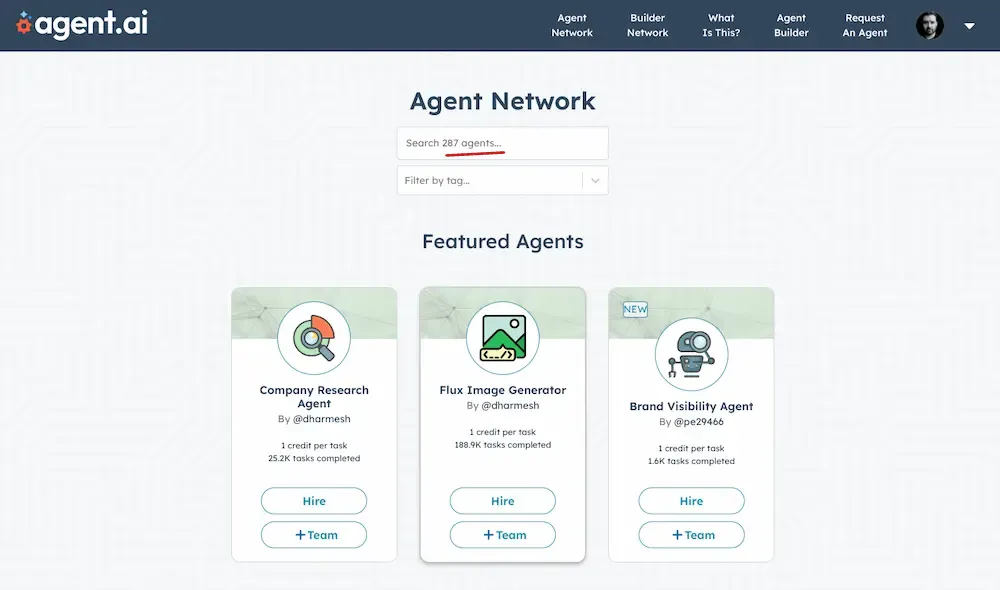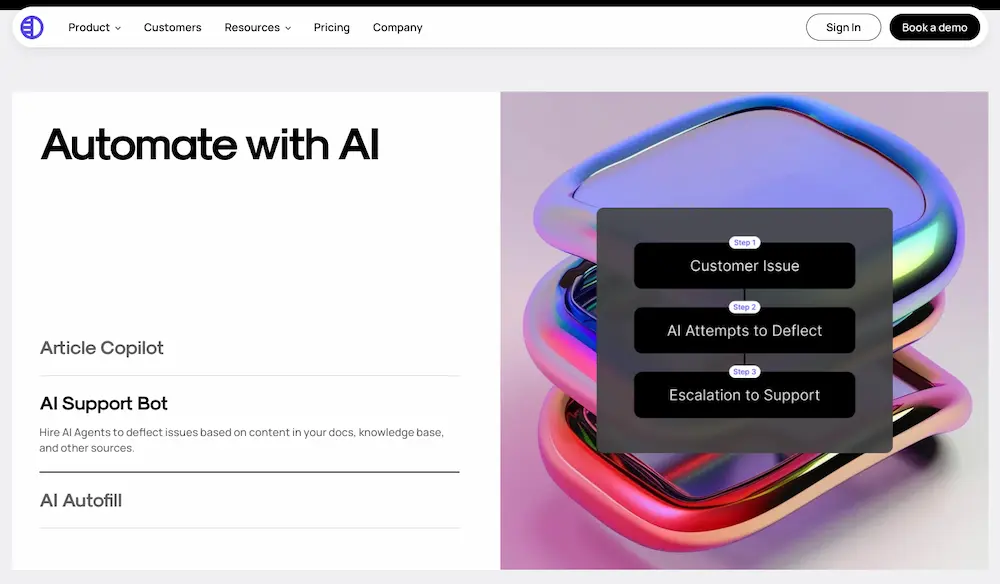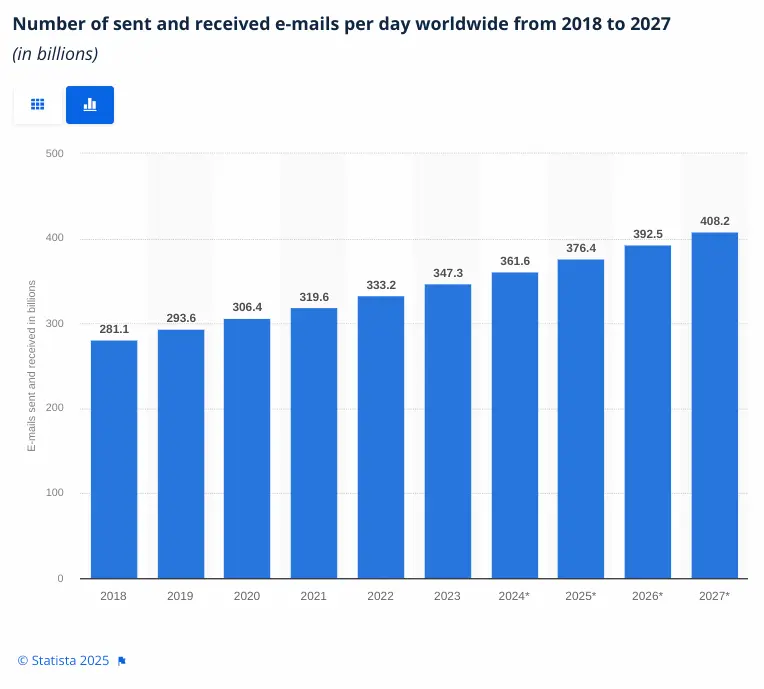AI agents are, it seems, everywhere these days. From Dharmesh Shah's agent.ai to Google's Project Mariner, it's starting to seem like "there's an AI agent for everything."
Almost 20 years since the launch of the iPhone - and the App Store that came with it - are we entering a new age where apps don't matter?
Before we start to answer that question, it's worth digging into AI agents - what they are, what they are not, and what they could become.
What are AI agents?

AI agents, in their simplest form, are AI-enabled software programs that can perform tasks that typically require human intelligence and inputs, like learning, problem-solving, and decision-making. AI agents work in lots of different ways, but are typically assigned tasks to complete using knowledge they already have, and knowledge they learn to obtain.
AI agents are - as you might have guessed - "intelligent." Intelligent agents can be used to automate various tasks, from simple tasks like resetting a password, to more complex tasks like data analysis, image generation, and conducting internet searches.
Agents are already everywhere
You've probably already been using "agents" of some sort for a few years now - chatbots, for example, were an early type of "intelligent agent" that we summoned to complete simple tasks for us, like retrieving flight information or ordering cappuccinos.
These days, however, it's possible to create and deploy different types of intelligent agents, with a variety of different names - like simple reflex agents, model-based reflex agents, goal-based agents, utility-based agents, and learning agents.
Confused already? Let's take a minute to absorb what each of these actually means.
Types of AI agents
Before diving deeper on each, just know that the list of agent types below isn't an exhaustive list - and might never be. New types of "agents" will emerge, and AI is evolving fast - so expect the "types" to grow in number and converge over time. But this list of four (of five originally coined by Stuart Russell and Peter Norvig in 2003) is a good start.
Simple reflex agents
Simple reflex agents are most similar to the chatbots you might have used circa 2016, when Facebook Messenger went all-in on them and launched chatbot features at F8. They operate based on predefined rules, and interact with predefined data sources.
They're AI agents that don't really understand good from bad, or right from wrong. They don't evolve or adapt based on what they do, or what they learn. They're most suitable for repetitive tasks that don't change often - like password resets, and getting quick answers from structured data.
Model-based reflex agents
Model-based reflex agents are a little bit smarter than simple reflex agents. They're AI agents that can think through and evaluate potential and probable outcomes and consequences before making informed decisions, and lean on supporting data to model the "world" around them and adapt to new situations and contexts.
They're suitable for tasks that require more complex decision-making processes - from customer engagement and contact center use cases, to robotics. Self-driving cars, for example, can maintain a model of other vehicles' positions in real time even when they're temporarily out of sight. The laws of physics and traffic rules help them predict - using sensor data and internal models - how certain scenarios could evolve.
Goal-based agents

Goal-based agents are AI agents that have reasoning capabilities and can evaluate a variety of different approaches to achieve an outcome or goal. They're usually applied to perform complex tasks, like resolving customer queries (like Pylon), or creating marketing and advertising campaigns focused on a particular goal or set of goals (like Arcane).
Goal-based agents always choose the most efficient path towards achieving their goals. They're opinionated and use internal models to support their decisions, which makes them particularly useful and helpful for users that require AI agents to perform specific tasks with minimal effort. They do, however, usually require some amount of human supervision and intervention to perform well.
Learning agents
Learning agents are AI agents that continuously learn from previous experiences - including interventions from humans - to improve their performance and results. They are - in many ways - the epitome of "autonomous agents" in that they can, just like "human agents," adapt their approach and method of reasoning based on past interactions.
Learning agents basically train themselves, and design new tasks to complete, using a variety of inputs and collected data (including, in many cases, sensitive data). These are, in many ways, the most "intelligent agents" - but many people in many industries are fearful of them, and fearful that their self-training capabilities could lead to harmful or unpredictable outcomes.
Benefits of AI agents
AI agents - like apps, integrations, and workflow automations that came before them - offer new ways for us to automate complex workflows, saving (and earning) people and companies time, money, or both. Every agent is a personal assistant that we can delegate "work-work" to, to free us up for more strategic tasks.
Because AI agents can multi-task (unlike most humans), they can - for example - handle multiple customer interactions and inputs simultaneously, reducing response times and increasing the efficiency of customer service teams.
Every agent is a virtual assistant
They also free up human agents to focus on more complex and value-added tasks, and can provide 24/7 support at a low cost, making it easier for global businesses to scale support functions, while keeping their employees happier by removing repetitive tasks from their day-to-day.
AI agents - for the customer service use case at least - usually also create happier customers. They provide quick and (again, usually) accurate responses without human intervention, which can lead to higher customer satisfaction scores.
It's worth keeping in mind this "benefit" could pose some challenges for support teams in future. Many CS teams are compensated based on resolution rates and resolution times - which is why it's becoming more important to draw clear lines to define whether or not a customer query was truly resolved by an AI agent or a human.
Agent integration
Of course, customer service is just one use case. AI agents are already being deployed to help a variety of teams - product, marketing, sales, engineering, legal, finance (and everything in between) to help them become more productive and more impactful.
And, increasingly, AI agents are being integrated with other products and platforms (and large language models) to enhance their capabilities and integrate with the systems and tools customers already use.
Which brings us back to the topic of the post... Will AI Agents augment or replace apps?
Will AI agents replace apps?
Before we get close to an answer, it's worthwhile looking back in time. Technology evolves quickly - which is why we're perennially excited by it. It's exciting because new technology usually promises a vision of the future we've only previously read about in books, or seen in the movies.
That's why we're eternally impressed by robotic bartenders and self-driving cars.
But a promised vision does not - on its own - eliminate our existing habits, or help us create new ones. Especially if the vision relies on a technological nirvana that does not yet exist.
New habits take time to form (and evolve)
Slack, in its early days, was hailed by the media as an "email killer." Why, then, did Slack CEO Stewart Butterfield go on record just a few years later to say "We don’t need to kill email. We never set out to... It’s a universal standard."
Because habits - and standards - are hard to change.

Platforms like Slack didn't kill email. If anything they've contributed to the growth of email usage, due to the sheer volume of email notifications platforms like Slack create. Email notifications get built because people - no matter how hard we try not to - we default to email as a main form of communication, especially in the world of business.
If a Zapier Zap stops working, they email us about it. When Jira tickets are updated, Atlassian sends us email notifications. If a HubSpot campaign starts, they send us an email to let us know.
Email is so important to their customers, Intercom built "Fin over email" to allow their AI agent (Fin) to reply to and deflect support conversations over email. Intercom launched this feature 6 years after calling email "increasingly ineffective."
Most technology products are built atop the platform that is "email" - which is why email just might be one of the biggest "platforms" in the world.
Technology is never a zero-sum game
Platforms like Slack - it could be argued - augment our email experience, not the other way round. And, though AI agents are still pretty new, it's likely they'll augment the apps we already use - they certainly won't "kill" them.
Some recent "AI agent" product launches point in this direction. HubSpot's Breeze isn't a standalone product - it's deeply woven into the HubSpot experience customers already use and love. Same for Salesforce's Agentforce. It doesn't replace Salesforce, or email - it augments and improves the experience customers already have.
They are, as the saying goes, better together.
But what about these new agent tools?
I mentioned agent.ai earlier, but it's the only agent program in town. A new breed of multi-agent systems - including Crew and Relevance - offer the ability to create agents, or tap into growing networks of agents built by others. Wotnot, which originally positioned itself as a chatbot platform to build conversational assistants, is now starting to position itself as an "AI agent builder."
The common feature across all of them? Integrations.
These agent tools are positioning themselves as "networks" and "ecosystems" but they still rely on deep integrations into the apps, products, and platforms customers already know, use, and love. Sound familiar? They augment and improve - they don't replace.
From automation, to agents
Scott Brinker captured this trend nicely, when he said "AI agents are the new iPaaS."
In so many ways, they are. Crew, the "Leading Multi-Agent Platform," mentions the words "workflow" and "automation" twenty-three times on their homepage. Two words that describe a sequence of actions that can now be enhanced with a sprinkling of autonomous AI.
Every AI agent functions still in a similar way to a "legacy" iPaaS workflows or sequences of automations. The approach might be slightly different - and more modern - but the hoped outcome is still the same. The ultimate goal is to save (or earn) us time, money, or both.
Existing iPaaS products and platforms have already evolved in this direction. From Zapier's "Agents" feature, to n8n's growing number of AI agent integrations, the world of iPaaS is betting big on model-based agents as a new way to augment and improve the existing products we already use.
AI agents, and apps, are here to stay
So there you have it. No, AI agents aren't killing SaaS. Or apps.
But they absolutely will change the way we interact with and use the products and platforms we already use, and increase the value we get from them.
Which, like most technology innovations over time, is a net-positive for us all.





